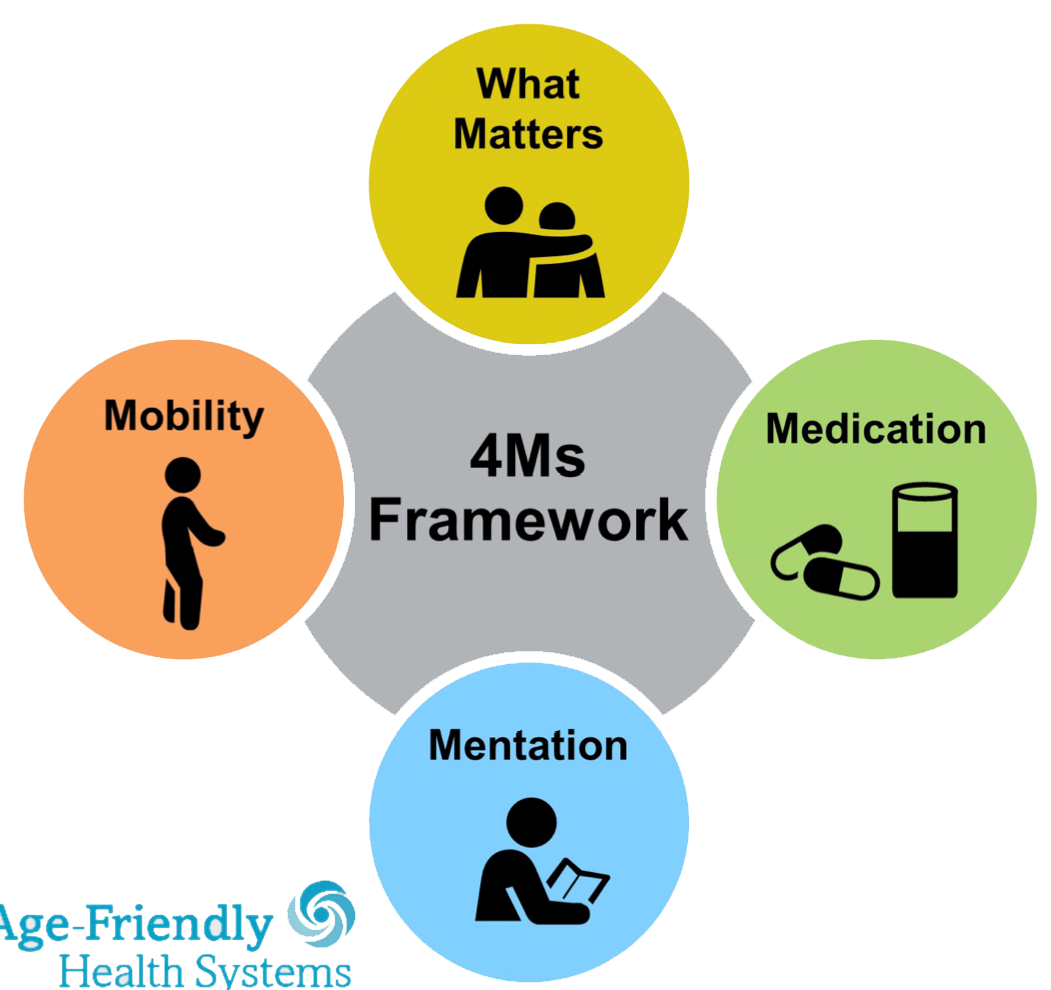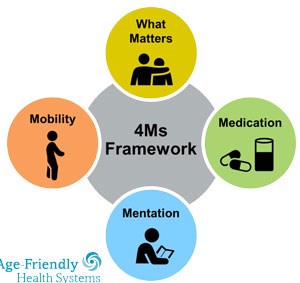In an innovative cross-sector relationship, the USI GWEP connects selected Deaconess primary care clinics with social service sectors in order to improve health outcomes for elders by embedding Area Agency on Aging (AAA) care managers in primary care clinics. This partnership responds to a gap in how elders are served by addressing the interrelated social and medical needs of the elder population, thereby improving health outcomes in dementia caregiver education, opioid misuse, advance care planning, diabetes management and fall prevention.

 One of the objectives of the GWEP is to transform primary care settings to become an age-friendly health system incorporating the elements of the 4Ms: What Matters to the Older Adult, Medication, Mentation, and Mobility. Learn more about the 4Ms.
One of the objectives of the GWEP is to transform primary care settings to become an age-friendly health system incorporating the elements of the 4Ms: What Matters to the Older Adult, Medication, Mentation, and Mobility. Learn more about the 4Ms.
The partnering AAAs (SWIRCA & More and Generations) are embedding three AAA care managers in three primary care clinics associated with the health system. AAA care managers provide options counseling, an interactive process where individuals receive guidance in their deliberations to make informed choices about long-term services and supports in an effort to maintain independence in the community in the least restrictive setting as long as desired. In addition to options counseling, care managers provide referrals and linkages to evidenced-based activity programs, nutrition programs and specialty services in advance care planning (ACP) and dementia caregiving support. Based on community need, targeted interventions are implemented at the patient, family caregiver, provider, and health care professional level in an effort to create age-friendly environments.
This cross-sector relationship model intends to respond to the interrelated social and medical needs of the community and create educational opportunities that will improve health outcomes in dementia caregiver education, opioid misuse, ACP, diabetes management, fall prevention and use of high-risk medications in the elder population.
Participating Deaconess Clinics:
Deaconess Clinic
Downtown Evansville
Began Fall 2019
Deaconess Clinic
Petersburg
Began Fall 2020
Deaconess Clinic
Reo
Began Fall 2021